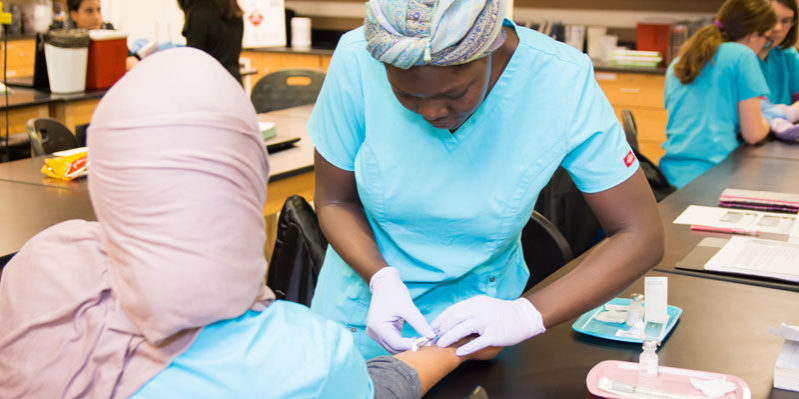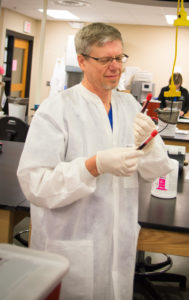
According to the Bureau of Labor Statistics, healthcare occupations will increase 18% from 2016-2026, a jobs rate growth that is much faster than other occupations, and will result in the addition of about 2.4 million new jobs. These above average increases are based in part on the increase in the U.S. senior population’s demand for healthcare and additional support needed for patients with chronic health problems such as diabetes and hypertension.
Spring Application Deadline:
Several of our allied health and nursing programs have spring application deadlines that must be met to be admitted into the program. Please refer to our website for specific program deadline information.
 And while healthcare continues to function as a business, there have been changes over the past decade that have led to the emphasis of care shifting from purely a profit perspective to one that focuses on providing consistent, cost-effective, quality patient care. The Institute for Health Improvement (IHI), an organization leading the effort to change health care priorities, has provided respected innovation and high standards for over 20 years. The main themes of this organization are quality improvement through scientific results (including costs), individual and family-centered care and patient safety.
And while healthcare continues to function as a business, there have been changes over the past decade that have led to the emphasis of care shifting from purely a profit perspective to one that focuses on providing consistent, cost-effective, quality patient care. The Institute for Health Improvement (IHI), an organization leading the effort to change health care priorities, has provided respected innovation and high standards for over 20 years. The main themes of this organization are quality improvement through scientific results (including costs), individual and family-centered care and patient safety.
This is where the movement for teamwork in the healthcare industry stems from. Today, responsibility for patient care is shared by a team of healthcare professionals and technicians. With such high demand for healthcare, it takes more than doctors and nurses to meet patient needs and clinical care is becoming more complex and specialized. Working as a team helps to prevent medical errors and worker burnout.
For those considering a career in the field, healthcare education opportunities are available close by. At South Central College (SCC), Allied Health and Nursing programs offer many career choices whether just starting out or moving on to the next technical level. An introduction to health care careers can simply begin with an interest in a course for medical terminology or nursing assistant.
Some of SCC’s allied health and nursing programs require an application process with pre-requisite course completion. The high expectations of the industry are infused into the technical healthcare career programs through specific program accreditation. The programs offered at SCC that have met the rigors of an accreditation process for several years are the Dental Assisting, Health Unit Coordinator, Intensive Paramedic, Medical Assisting and Medical Laboratory Technician/Phlebotomy programs.
In regard to nursing, the Minnesota State Board of Nursing recently began requiring accreditation by a national body, with SCC’s Practical Nursing (LPN) and Professional Nursing (RN) programs receiving accreditation from the Accrediting Commission for Education in Nursing (ACEN), an indicator of excellence for nursing programs nationwide.
Additionally, to meet the training demands required of these programs, SCC has developed excellent Health Simulation Centers. The Centers are used to evaluate students’ communication, teamwork skills, and decision-making abilities in scenarios similar to situations in the actual clinical setting. SCC’s Health Simulation Coordinator has certification in health simulation education in order to improve and provide meaningful and standardized simulated experiences for students. With all of those elements in place, SCC provides students with the tools necessary to be valuable member of any medical care team.
This article was written with assistance from Candence Mortenson-Klimpel, Interim Dean of Allied Health and Nursing at South Central College.
